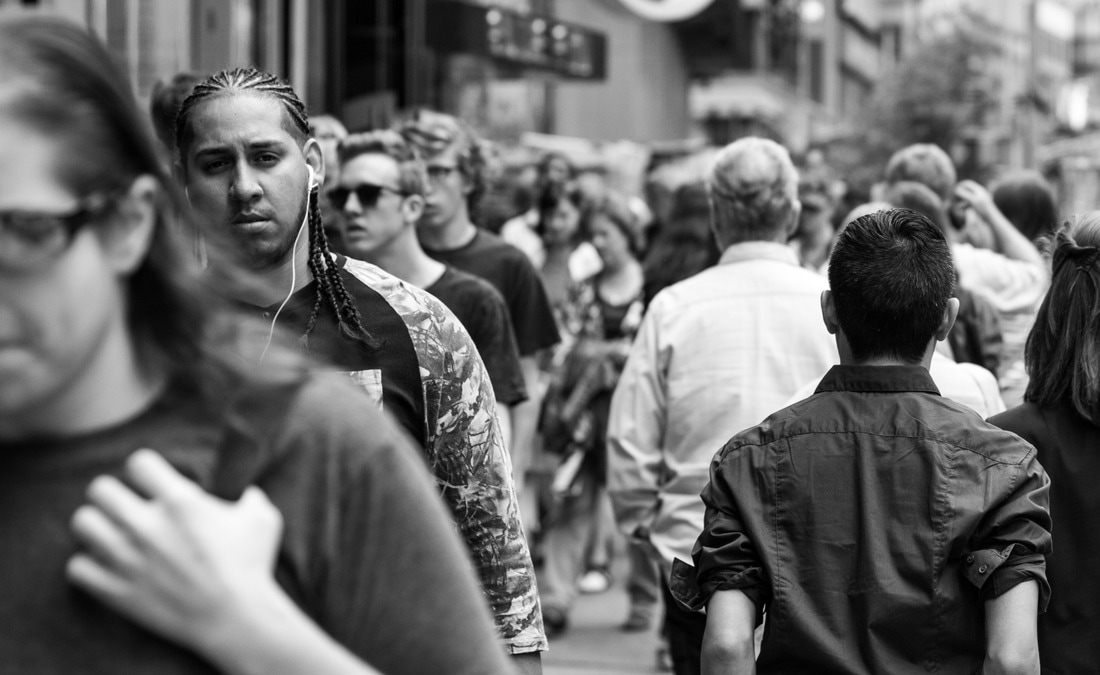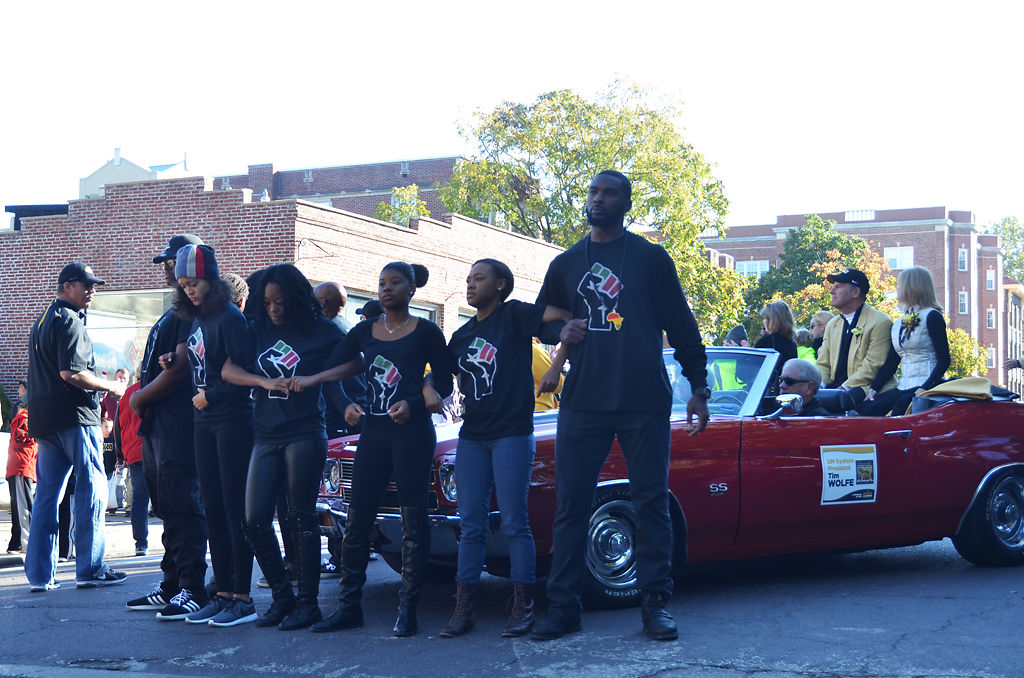|
What is it like being a black man living in a white man's world? I just finished reading one man's attempt at answering this question in the book "Makes Me Wanna Holler: A Young Black Man in America," written by Nathan McCall. It's a book that initially after reading the first few pages I almost put down and said it wasn't for me. Something told me to keep reading, keep pushing and I am happy that I did. Personally, I've always known I lived in a world and a country that didn't quite belong to me as most people believe. I grew up in a town of predominantly white people in Oakland, New Jersey. I attended a private university of mostly white people in Syracuse University in upstate New York. Then upon moving to Harlem, New York I went to work in corporate America, dominated by white people. What is it like being an ambitious black man in America that won't settle for anything, but the best? It's simple, it's a daily challenge.
There are few things that the author and I share in common with our lives and even more differences. He grew up in a predominantly black town in Virginia. He went on to attend Norfolk State College in Virginia, a predominantly black college. Then, after serving some time in jail for armed robbery he finished school and went on to lead a productive life in the newspaper business. Stark differences from my own life, and yet as I turned the pages and he matured I felt a strong connection in our on our view of the world. McCall was fortunate to make something of himself after prison and work hard to live in his future and not let his past define him. Yet, he learned time and time again there were a lot of folks who did not want him to succeed. There were coworkers that said he only had his job because of affirmative action. There were old childhood friends that wanted to pull him back to doing illegal things. There were even women who did not have his best interest at heart, but saw what he represented and gravitated towards that. These are some of the things that plague a lot of people every day, but in particular, something that black men think about every second of every day. Am I good enough? Did I work hard enough? Did I earn this? This book told the life of McCall through the highs and the lows. It was a transparent view of one man's experiences and a personal diary of what a lot of black men go through, but rarely express. I gained so much from reading each page. From shared awkward experiences in the workplace articulated through the text to personal feelings of self-doubt to understanding when it's time to let some friends grow, it's all real and it's actually okay to experience and grow from. It's not easy living each day to the fullest, but no one said being great was supposed to be easy. Understanding who you are and where you come from and the sacrifices made before you help shape your own future. It's important for individuals to take accountability for their own lives, but it's even more important for each and every person to understand nationalities and backgrounds that they don't live every day. We are taught white America our entire lives growing up. There is small amounts of time spent on people of color, but is our history any less significant? Were we invisible or were we working just as hard to pull ourselves up? I never thought about this until reading this book, but there is such a heavy burden on others to learn about the things not taught in school. Be better and challenge yourself to get to know others who are not like you. Get to know their experiences good and bad. Get to know things that they struggle with on a daily basis, and there is no doubt there are shared experiences between all of us. It's not easy being a black man in a white mans world, but I kind of like it that way. Each day I have something to prove to no one else but myself. I am worthy, I am great and I am going to live the life I've always dreamed about.
1 Comment
It's been a long week for the state of Missouri. First, a graduate student at the University of Missouri went on strike because of racial issues having gone unaddressed. Then, a group of African American football players on the Mizzou squad said they would no longer participate in any football related activities until the school president stepped down or was removed. This morning I woke up to the news that school faculty would stage a walkout at some point today standing in solidarity and support of the students on the campus and the issues they too saw on campus. But that walkout never happened. It wasn't necessary because late this morning the president of the University of Missouri system formally resigned. It was a shocker to most, coming just one day after President Tim Wolfe released a rather adamant statement that he would continue his job and somehow work through the issues that he never felt the need to be addressed previously. But ultimately the voice of students prevailed. And the onslaught did not stop there. Late this afternoon the school chancellor said he too would resign. It's the beginning steps in the healing process to a school and a community that has gone through so much.
Less than three miles away Michael Brown was gunned down by a Ferguson police officer in August of 2014. But there were no school statements, no school wide discussions, nothing. Students shared incidents of racial slurs being called the "n-word" while walking to and from class. Another student said a professor once said she was there because of affirmative action. It was incidents like these and others that led to built up frustration on the campus. Then, the tipping point came when a swastika was drawn with feces on the wall of a campus building. Many students had had enough. The school was not doing anything, so the students would make something happen. The voices started small with demonstrations. They grew louder as time went on. There was the time when a group stood in front of Wolfe's car during a parade in a peaceful demonstration. Wolfe's driver revved the engine and had police escort them away. But still no conversation and little to no acknowledgement. The football team decided to step up and step up in a big way. Their sacrifice made this a national issue. The SEC football team said they would stand up for what they saw was right. Their head coach supported them. It was unbelievable to watch the number of events that unfolded. It was inspiring. It make so many people feel hopeful, but we must understand it's the beginning steps. There are real issues. There is teaching that needs to take place and there are demands that need to be met. When people question diversity, they question true growth. Much of the ignorance going on around the world is rooted in the past and/or rooted from a place of misinformation. When people say black students take up most of financial aid, they're wrong. When they say all black people benefit most from affirmative actions they're wrong, women do. There are a lot of disconnects. It starts with education of facts and the education of different cultures from a young age. Then things will not be so foreign. As the University of Missouri enters into its second phase of healing, there needs to be an entire culture shift at the school. All the students need to be treated equality. All issues to any group should be treated with haste and seriousness. No student should be marginalized or like she/she does not belong. This is America we are talking about in 2015 and we continue to deal with real issues that should have been addressed a long time ago, but we push on. We learn and we grow. We see what true democracy looks like. We see what real unity is. We see what we can do when we stand up together for a cause. We see our voice matters. If this is what we can do on a school level, imagine what we can do on a national stage. |
Marquise Francislives by one word: achievement. in anything and everything, achieve. Archives
August 2021
Categories
All
|



 RSS Feed
RSS Feed